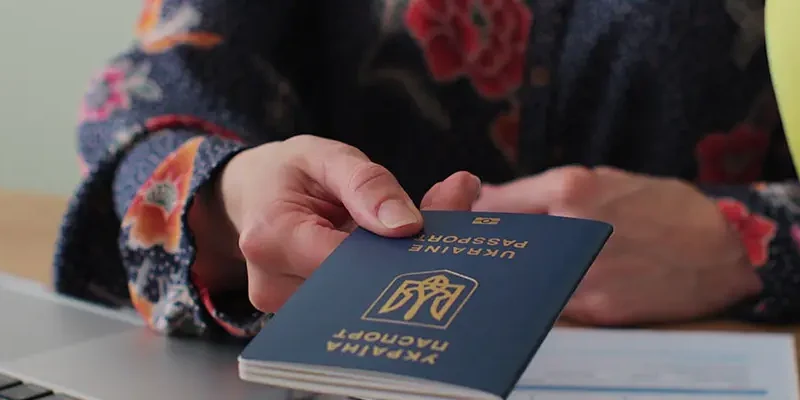Determining Problems of the Pereira Sessions Case

The Pereira Sessions Case has set a milestone in the United States immigration system. This Supreme Court decision has established precedents that directly affect the deportation process. In this article, we will analyze the determining issues of the Pereira Sessions case and how they can influence legal defense against deportation, including strategies like filing a motion to reopen a deportation case and appealing a deportation order.
Introduction to the Pereira Sessions Case

The Supreme Court issued a key decision in the Pereira Sessions case that sets a significant precedent for immigration reform in the United States. The main issue in this case revolves around the validity of Notices to Appear (NTA), which are documents issued by the government to initiate deportation proceedings. That day, the court ruled that a Notice to Appear that does not include the date, time, and location of the hearing does not meet legal requirements and is therefore invalid for interrupting the accumulated time towards legal permanent residency.
This decision has been an important victory for immigrant rights advocates, as it opens the door to canceling deportation proceedings and provides new strategies for immigrants at risk of deportation.
How Pereira Sessions Impacted Legal Defense Against Deportation
The Pereira Sessions ruling determined that a Notice to Appear lacking the date and time of the hearing is a defective document. This means that many deportation proceedings initiated with these notices could now be invalidated. If you or a loved one has received a Notice to Appear missing this essential information, your deportation case may be canceled.
Motion to Reopen a Deportation Case


In cases where a deportation order has already been issued based on a defective Notice to Appear, it is possible to file a motion to reopen the deportation case. This strategy allows immigration lawyers to reassess the case in light of the Pereira v. Sessions ruling and request that the deportation order be annulled.
The success of this motion depends on several factors, including the quality of legal representation and how quickly the motion is filed after the deportation order. Having an experienced attorney in deportation defense is crucial to maximizing the chances of success in such proceedings.
Legal Representation in Urgent Deportation Cases
If you are facing imminent deportation, it is vital to act quickly. Deportation proceedings can move swiftly, and errors in the process can have devastating consequences. Urgent deportation defense may involve filing motions, appeals, or even requesting a temporary suspension of deportation while legal issues are resolved.
Rights Under an Order of Supervision

Immigrants in deportation proceedings may be placed under an order of supervision instead of being deported immediately. The immigrant has the right to remain in the country while complying with certain conditions, such as regularly reporting to immigration authorities.
Knowing your rights under an order of supervision is crucial to protecting your status and avoiding violations that could lead to deportation execution. An attorney can advise you on how to comply with the order of supervision requirements while working on your defense.
How to Appeal a Deportation Order in the United States
If the immigration judge issues a deportation order, all is not lost. Immigrants have the right to appeal the decision to the Board of Immigration Appeals (BIA).


The appeal process is complex and requires experienced legal representation in deportation cases to present a strong case.
Deportation Order Appeal Process
The appeal process for a deportation order begins with filing a notice of appeal with the BIA. It is essential to have an attorney who can review the legal errors made during the initial trial and argue why the judge’s decision should be overturned.
During the appeal, your attorney may also present new evidence to support your case or argue that you were not provided due process. If the BIA decides in your favor, the deportation order can be annulled, allowing you to remain in the United States.
Potential for Cancellations and Reversals of Deportation

This case has opened the possibility of canceling deportation proceedings for many immigrants who received defective Notices to Appear. This is especially relevant for those seeking cancellation of deportation as a means to obtain permanent residency.
Those who have been deported could have the opportunity to reverse the deportation if the procedure was based on a defective Notice to Appear. This underscores the importance of consulting with an immigration attorney who can review your case and determine the best legal options available.
Importance of Legal Defense Against Deportation in the Context of Pereira v. Sessions
The Supreme Court’s decision not only affected the validity of Notices to Appear but also highlighted deficiencies in the immigration process. Having a strong legal defense against deportation is more important than ever.


An immigration lawyer can help you identify errors in your deportation procedure, file motions to reopen your case, and appeal unjust deportation orders. Legal representation in deportation cases is essential to ensure that your rights are respected and that you are afforded due process.
Conclusion
The Pereira Sessions case has changed the landscape of legal defense against deportation in the United States. If you or a loved one is facing deportation proceedings, it is crucial to act quickly and seek legal representation in deportation cases.
In our immigration law firm in Dallas, Texas, we are committed to fighting for the rights of immigrants and offering the best legal defense against deportation. Contact us today to schedule a consultation and discuss your case with an expert attorney. We are here to help protect your future and your right to remain in the United States.
Buscar
Categorías
Populares
Recientes
Programe una cita con nuestro equipo de inmigración
Para cualquier duda, comuníquese con uno de nuestros asesores legales
+1 (214) 501-0560
LUNES - VIERNES:
8:00 AM - 6:00 PMSÁBADOS - DOMINGOS:
Cerrado








